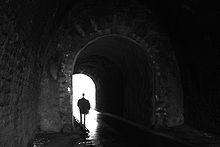Scientists to study near-death experiences
Saturday, September 20, 2008

An international study, Awareness during Resuscitation experiment (Aware), will examine near-death experiences involving 1,500 cardiac arrest survivors in about 25 centers in the US and Britain. The study is coordinated by the Human Consciousness Project at the University of Southampton, which specializes in studying the human brain, consciousness and death.
The research, expected to take three years, will analyze whether people with no heartbeat or brain activity can have "out of body" experiences. Some people report seeing a tunnel or bright light, recall looking down from the ceiling at medical staff, hearing voices telling them to return to the living world and others feel a tremendous sense of peace and well-being.
During the study, doctors will use technology to study the brain and consciousness during cardiac arrest. To test whether such experiences involve the mind leaving the body, pictures will be placed around the areas of the hospital where heart attacks occur most frequently, such as accident and emergency and intensive care units. The pictures will only be visible from above. If patients are able to describe these pictures, project leaders argue that scientists will have to rethink how they understand the mind.
"There could be great benefits from this research for the future," said Penny Satori, an Intensive care nurse, who leads the project at Morriston Hospital. "As well as helping surviving patients psychologically after a trauma, it can give peace of mind to grieving families.
| If you can demonstrate that consciousness continues after the brain switches off, it allows for the possibility that the consciousness is a separate entity. | ||
—Dr Sam Parnia, University of Southampton | ||
Sources
- "Study into near-death experiences" — BBC News Online, September 18, 2008
- "Scientists to unravel mystery of near-death experiences" — The Hindu, September 18, 2008
- "Is it possible to have an 'out-of-body'experience?" — The Independent, September 19, 2008
- David Derbyshire. "Scientists to uncover the truth of out-of-body experiences" — The Daily Mail, September 19, 2008
